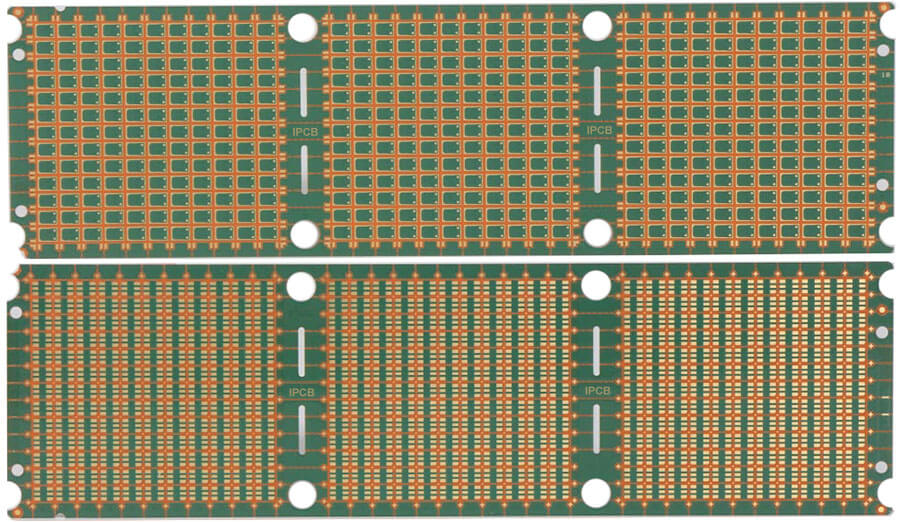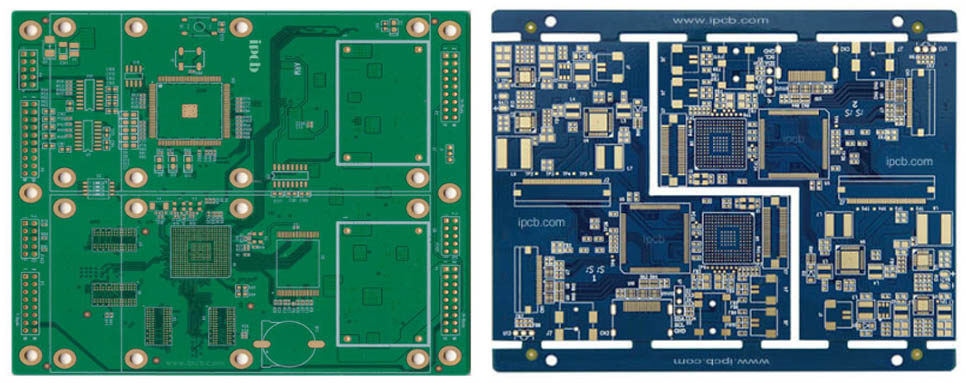In modern electronic equipment, both IC carrier boards and PCB play important roles. Although they are often used interchangeably, there are actually some differences and connections between them.
IC carrier refers to the carrier on the integrated circuit (IC) chip. It is constructed from multiple layers of composite material that provide circuit connections and temporary storage. IC carriers usually consist of copper foil, fiberglass layers and substrate layers. Its design and manufacturing process is relatively complex and needs to be customized according to the specific IC chip. IC carrier board plays a role in connecting IC chips and other electronic components in electronic equipment, and is a key component for the normal operation of electronic equipment.
In contrast, a printed circuit board (PCB is a circuit carrier and is widely used in electronic products. Circuit boards are used to connect and support electronic components and are an important part of electronic equipment. It uses a process of printing circuits with conductive materials and isolating circuits with non-conductive materials. Commonly used materials for circuit boards include fiberglass, epoxy resin and copper foil. The PCB has high strength, good conductivity and isolation performance. Its design and manufacturing process are relatively simple and can be mass produced.

IC carrier board
1. The functions of IC carrier board and PCB are different
IC carrier boards are mainly used for the connection and temporary storage of integrated circuit chips, and are suitable for some electronic devices that require high performance and customization. Circuit boards are suitable for most electronic equipment and are used to connect and support various electronic components. They are the most common circuit carriers in electronic equipment.
2. The materials of IC carrier board and circuit board are different
PCB uses conductive and insulating materials such as copper-clad laminates, glass fiber materials, and PTFE materials; IC carrier board mainly use polymer materials (such as FR-4) and brittle ceramic materials.
3. The structures of IC carrier boards and PCB are different
PCB forms a circuit board by stacking multiple layers, which can be connected through holes; the structure of the IC carrier board mainly includes circuit layers and assembly layers.
4. IC carrier boards and circuit boards have different application scenarios.
PCB is widely used in the field of electronic product manufacturing, such as computer motherboards, mobile phone circuit boards, etc.; IC carrier boards have the characteristics of compactness, high density, and high reliability, and are widely used in high-end electronic fields, such as aerospace, national defense, and military industries. Automotive electronics, etc.

PCB
IC carrier boards and PCB also have many similarities. First, they are all critical components of electronic equipment, without which modern electronic equipment would not function properly. Secondly, they all require precise design and manufacturing processes to ensure the stability and reliability of circuit connections. In addition, they can also be customized and mass produced according to specific needs.
In general, IC carrier boards and PCB play an irreplaceable role in electronic equipment. Although there are some differences between them, they are also very closely related. Only by deeply understanding their characteristics and applications can they be better applied in the design and manufacturing of electronic equipment. I hope this article will help you understand the differences and relationships between IC carrier boards and PCB .